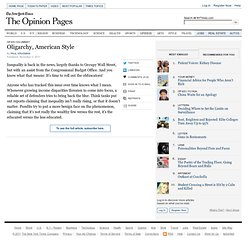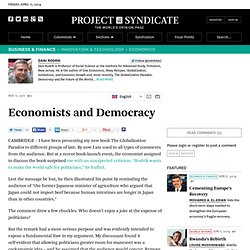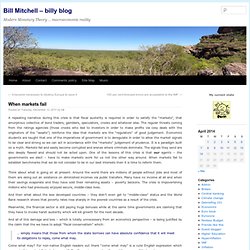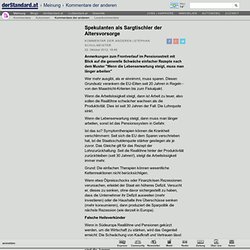

Investitionsverträge, die Maßanzüge der Multis: Lateinamerikanische Erfahrungen. Welcome to Forbes. Grundeinkommen - DER FILM. Wenn 147 Konzerne die ganze Wirtschaft kontrollieren - News Wirtschaft: Unternehmen. ETH-Forscher aus dem Bereich Systemdesign haben den globalen Kapitalismus mit den Methoden der modernen Systemtherorie unter die Lupe genommen.

Ihr Schluss: Eine kleine Gruppe von 147 Firmen kontrolliert den Grossteil der übrigen Wirtschaft. Die Forscher filterten aus der Datenbank Orbis – diese enthält die Einträge von rund 37 Millionen Firmen – etwas mehr als 43'000 multinationale Konzerne heraus, welche durch wechselseitige Aktienbesitze vernetzt sind. Gemäss «SonntagsZeitung» stiessen die Systemtheoretiker bei der weiteren Analyse von Besitz- und Machtverhältnissen auf einen Kern von 1318 Firmen, die dank Aktien grosse Teile der Realwirtschaft kontrollieren. Finanzinstitute im Zentrum Damit waren die Forscher noch nicht im effektiven Zentrum der Machtkonzentration angelangt.
Ebenfalls spannend: Rund drei Viertel der Mitglieder der Super-Einheit gehören der Finanzindustrie an. Wettbewerb wird behindert. The capitalist network that runs the world - physics-math - 19 October 2011. AS PROTESTS against financial power sweep the world this week, science may have confirmed the protesters' worst fears.

An analysis of the relationships between 43,000 transnational corporations has identified a relatively small group of companies, mainly banks, with disproportionate power over the global economy. The study's assumptions have attracted some criticism, but complex systems analysts contacted by New Scientist say it is a unique effort to untangle control in the global economy.
Pushing the analysis further, they say, could help to identify ways of making global capitalism more stable. The idea that a few bankers control a large chunk of the global economy might not seem like news to New York's Occupy Wall Street movement and protesters elsewhere (see photo). But the study, by a trio of complex systems theorists at the Swiss Federal Institute of Technology in Zurich, is the first to go beyond ideology to empirically identify such a network of power. The Zurich team can. Global corporate control. Wirtschaftliche Macht und Demokratie. Harald Schumann - Wirtschaftliche Macht und Demokratie. Oligarchy, American Style. Anyone who has tracked this issue over time knows what I mean.

Whenever growing income disparities threaten to come into focus, a reliable set of defenders tries to bring back the blur. Think tanks put out reports claiming that inequality isn’t really rising, or that it doesn’t matter. Pundits try to put a more benign face on the phenomenon, claiming that it’s not really the wealthy few versus the rest, it’s the educated versus the less educated. So what you need to know is that all of these claims are basically attempts to obscure the stark reality: We have a society in which money is increasingly concentrated in the hands of a few people, and in which that concentration of income and wealth threatens to make us a democracy in name only.
The budget office laid out some of that stark reality in a recent report, which documented a sharp decline in the share of total income going to lower- and middle-income Americans. So who is getting the big gains? Economists and Democracy by Dani Rodrik. Exit from comment view mode.

Click to hide this space CAMBRIDGE – I have been presenting my new book The Globalization Paradox to different groups of late. By now I am used to all types of comments from the audience. But at a recent book-launch event, the economist assigned to discuss the book surprised me with an unexpected criticism. “Rodrik wants to make the world safe for politicians,” he huffed. Lest the message be lost, he then illustrated his point by reminding the audience of “the former Japanese minister of agriculture who argued that Japan could not import beef because human intestines are longer in Japan than in other countries.” When markets fail. A repeating narrative during this crisis is that fiscal austerity is required in order to satisfy the “markets”, that amorphous collective of bond traders, gamblers, speculators, crooks and whatever else.

The regular threats coming from the ratings agencies (those crooks who lied to investors in order to make profits via cosy deals with the originators of the “assets”) reinforce the idea that markets are the “regulators” of good judgement. Economics students are taught that one of the imperatives of government is to deregulate in order to allow the market signals to be clear and strong so we can act in accordance with the “markets” judgement of prudence.
It is a paradigm built on a myth. Markets fail and easily become corrupted and arenas where criminals dominate. The signals they send are also deeply flawed and should not be acted upon. Spekulanten als Sargtischler der Altersvorsorge - Kommentare der anderen - derStandard.at › Meinung. Wer mehr ausgibt, als er einnimmt, muss sparen.

Diesen Grundsatz verankern die EU-Eliten seit 20 Jahren in Regeln - von den Maastricht-Kriterien bis zum Fiskalpakt. Wenn die Arbeitslosigkeit steigt, dann ist Arbeit zu teuer, also sollen die Reallöhne schwächer wachsen als die Produktivität. Dies ist seit 30 Jahren der Fall: Die Lohnquote sinkt. Wenn die Lebenserwartung steigt, dann muss man länger arbeiten, sonst ist das Pensionssystem in Gefahr. Ist das so? Grund: Die einfachen Therapien können wesentliche Kettenreaktionen nicht berücksichtigen.
Wenn etwa Ölpreisschocks oder Finanzkrisen Rezessionen verursachen, erleidet der Staat ein höheres Defizit.